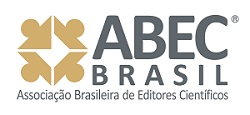Irrigation of papaya in a sandy loam soil in the semiarid of Bahia, Brazil
DOI:
https://doi.org/10.5039/agraria.v15i1a6193Keywords:
Carica papaya L., deep percolation, irrigation scheduling, waste of water in irrigation, water use efficiencyAbstract
Irrigated farming enables producing papaya in Iaçu, located in the semiarid region of Bahia. However, water must be used efficiently, as the local availability of irrigation water resources is restricted. This study was conducted with the objective of defining the irrigation depth that provides the best agronomic performance of the Tainung No. 1 papaya cultivar, in a sandy loam soil of Iaçu, in the semiarid of Bahia, under the irrigation management conditions adopted by the producer. The experimental design used was of randomized blocks with four replicates. The experimental plot consisted of a row of plants, containing two border plants and twelve useful plants. Treatments corresponded to the total water depth of 1.103; 1.702; 2226; 2.751; 3.349 mm. Studied variables were height, leaf area, fruit number and yield, water use efficiency, fruit weight, fruit diameter and length, pulp width, pulp water content, pH, soluble solids and titratable acidity. Growth and production of the papaya tree responded positively to the applied water depths, but there was no interference in fruit quality. The yield showed linear adjustment, with a calculated maximum at 123.845 t ha-1 obtained for 3.349 mm. With the increasing water depth applied, there was a reduction in water use efficiency due to percolation water loss.
Downloads
Downloads
Published
How to Cite
Issue
Section
License

This work is licensed under a Creative Commons Attribution-NonCommercial 3.0 Unported License.


